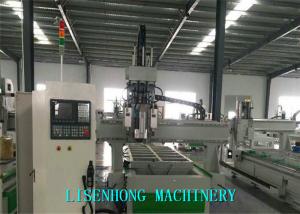Are you looking to delve into the world of advanced high-strength steel? If so, AR steel is a term you’ve likely come across. In this comprehensive guide, we’ll explore what AR steel is, its various applications, and why it’s becoming increasingly popular in the steel industry.
What is AR Steel?

AR steel, short for Advanced High-Strength Steel, is a type of steel that offers superior strength, formability, and toughness compared to traditional mild steel. It is designed to meet the demands of modern manufacturing processes and applications that require high-strength materials.
AR steel is classified into different grades, each with its own unique properties. Some of the most common grades include:
| Grade | Description |
|---|---|
| DP600 | High strength, excellent formability, and good toughness |
| DP800 | Higher strength than DP600, with similar formability and toughness |
| DP980 | Extremely high strength, with reduced formability compared to DP600 and DP800 |
Applications of AR Steel

AR steel is widely used in various industries due to its exceptional properties. Here are some of the most common applications:
-
Automotive Industry: AR steel is extensively used in the automotive industry for manufacturing body panels, bumpers, and other structural components. Its high strength and formability make it ideal for crashworthiness and lightweighting.
-
Construction Industry: AR steel is used in the construction industry for reinforcing concrete structures, such as beams, columns, and slabs. Its high strength and corrosion resistance make it a reliable choice for long-lasting structures.
-
Appliance Industry: AR steel is used in the appliance industry for manufacturing components that require high strength and durability, such as washing machine drums and refrigerator shelves.
-
Energy Industry: AR steel is used in the energy industry for manufacturing components that are exposed to high temperatures and pressures, such as pipelines and pressure vessels.
Advantages of AR Steel

AR steel offers several advantages over traditional mild steel, making it a preferred choice for many applications:
-
High Strength: AR steel provides excellent strength, which allows for the use of thinner materials, reducing weight and cost.
-
Formability: AR steel maintains good formability, allowing for complex shapes and designs without compromising strength.
-
Toughness: AR steel exhibits high toughness, making it resistant to cracking and deformation under stress.
-
Corrosion Resistance: Many AR steel grades offer excellent corrosion resistance, making them suitable for applications in harsh environments.
Manufacturing Process
The manufacturing process of AR steel involves several steps to achieve its unique properties:
-
Steelmaking: The raw materials, such as iron ore, coal, and limestone, are melted in a furnace to produce steel.
-
Alloying: Various alloying elements are added to the steel to enhance its properties.
-
Rolling: The steel is rolled into sheets or plates of the desired thickness and width.
-
Heat Treatment: The steel is heat-treated to achieve the desired strength, toughness, and formability.
Conclusion
AR steel is a versatile and high-performance material that is revolutionizing the steel industry. Its exceptional properties make it an ideal choice for a wide range of applications, from automotive and construction to energy and appliances. As the demand for high-strength materials continues to grow, AR steel is poised to play a significant role in shaping the future of manufacturing.
